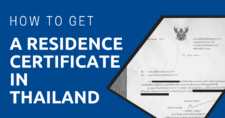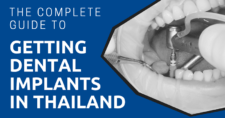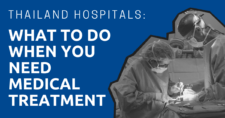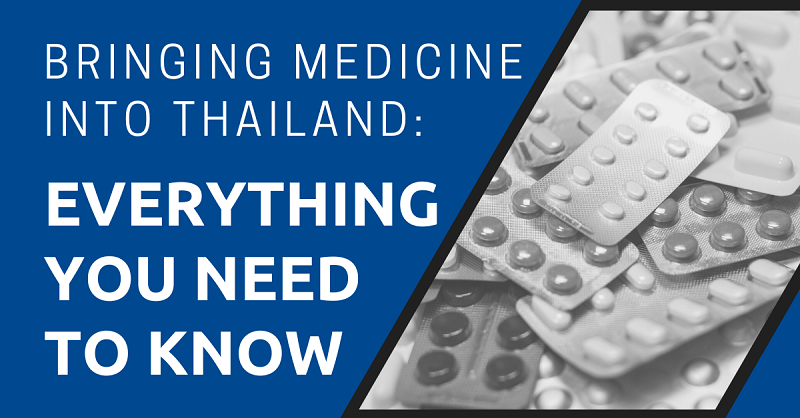
Thailand is known for its quality medical care, and that extends to what it offers in the form of medications.
In fact, there are plenty of pharmacies in the country, so if you need a specific kind of medication, you should be able to find it here easily.
However, Thailand’s drug laws will almost certainly differ from those in your home country, and some people with rare or chronic conditions may find that the medication they need are strictly controlled or outright unavailable here.
Thankfully, there are ways around these laws for some medications — but it’s not easy.
In this guide, we’ll explain what drugs are currently restricted in Thailand, and the criteria the Thai government uses to categorize them. We’ll also explain the process of bringing controlled medications into Thailand, and the paperwork you’ll need to fill out to do so.
For more health advice, join ExpatDen Premium and get expert tips and tricks on how to make the most of Thailand’s healthcare system. With your membership, you get immediate and unlimited access to our library containing hundreds of exclusive guides that will help you get affordable yet quality healthcare in Thailand. Here’s just a glimpse of what your membership gets you:
- How to Get Great Medical Treatment at Affordable Rates in Thailand
- Getting Quality Treatment at Affordable Prices with Premium Clinics in Thailand
- How to Lower Your Hospital Expenses with Government Hospitals
- Hospital Tips for Expats Without Health Insurance
…and so much more!
"*" indicates required fields
Disclaimer: This article may include links to products or services offered by ExpatDen’s partners, which give us commissions when you click on them. Although this may influence how they appear in the text, we only recommend solutions that we would use in your situation. Read more in our Advertising Disclosure.
Contents
What Medications are Controlled?
It’s easy to get hold of most standard over-the-counter medications in Thailand, and it’s likely that you can find your medication in the country, albeit potentially under a different brand name.
However, some prescription drugs may be banned for sale outright.
Categories
Controlled medications in Thailand are grouped into narcotics and psychotropics, and then further sub-divided into five categories for narcotics and four categories for psychotropics.
Thailand Food and Drug Administration (Thailand FDA) has a complete list of controlled narcotics and psychotropics.
Narcotics
The five categories for narcotics are as follows:
- Category One narcotics are those considered to be dangerous — heroin, methamphetamine, and so on.
- Category Two covers ordinary narcotics, such as morphine, oxycodene, and fentanyl.
- Category Three covers any medicines that contain Category Two narcotics as ingredients.
- Category Four covers any chemicals that can be used in the production of Category One narcotics, such as lysergic acid.
- Category Five covers any narcotics that aren’t listed in the other four categories, such as cannabis.
Psychotropics
The four categories for psychotropics are as follows:
- Category One psychotropics are those with no medicinal purpose and that are most likely to be improperly used or abused (such as mescaline).
- Category Two psychotropics are those which have medicinal purposes, but that are also likely to be abused (such as pseudoephedrine).
- Category Three psychotropics are those with medicinal purposes and that are only moderately likely to be abused.
- Category Four psychotropics have medicinal uses and are also the least likely to be abused (such as diazepam).
What Can You Bring into Thailand?
Category Two narcotics (which covers drugs such as codeine, morphine, or oxycodene) can be brought into Thailand legally. However, you must apply for a permit first.
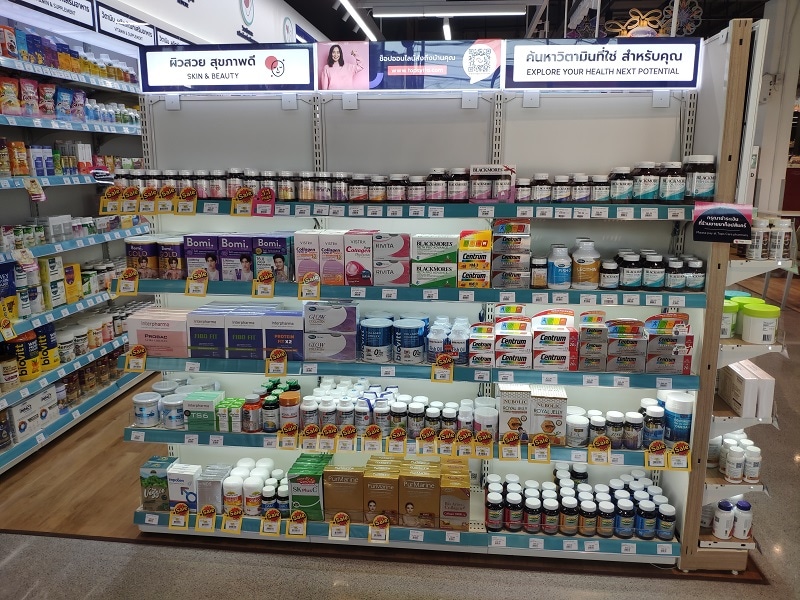
You must also declare your drugs at customs when arriving in the country. Be aware that the punishment for taking any medication from the other categories into Thailand can be very harsh — potentially up to 15 years in prison depending on the quantity.
For Category Two narcotics, you can legally bring enough medication to last you for a maximum of 90 days. Your medication must be in its original packaging.
Psychotropic medication, which falls under Categories Two, Three, or Four (or contains ingredients that fall under one or more of those categories) can be taken legally into Thailand, and you don’t have to seek out permission beforehand or declare it at customs.
For psychotropic drugs, you can take in enough to last you for a maximum of 30 days. It must also be in its original packaging when you land in the country.
Again, do not bring Category One psychotropics into Thailand — it will not end well for you.
How to Bring Medication into Thailand
Let’s take a look at how to bring medication into Thailand step by step.
Narcotics
Firstly, check the above list to find out what category of narcotics your medication falls under.
Don’t forget, any medication that falls under any of the categories besides Category Two is banned outright, and you’ll get in serious trouble if you get caught bringing it into Thailand.
If your medication falls under Category Two, you’ll have to apply for permission from the Thai FDA ahead of time. To apply, fill out form IC-1. In your application, you’ll need to include:
- the exact date you’ll be traveling
- your port of arrival
- your prescription
- a copy of your passport
You should fill out your application no less than a month, but more than 14 days, before the date you plan to leave your home country. Any later than that and your application will be turned down outright.
If you’re granted permission, you have to present your medication, medical documents (e.g a prescription), and your permit at the Red Channel at customs as soon as you land in Thailand.
When leaving Thailand, you’ll also have to seek permission to bring your medication out of the country by filling out form OC-1. You will have to declare your medication at customs upon leaving as well.
Psychotropics
As with narcotics, you should first ensure that your medication (or any ingredients within it) falls under one of the permitted categories of psychotropic drugs (for example, Categories Two to Four). Otherwise, you won’t be allowed to bring it into the country at all.
Unlike with restricted narcotics, you don’t need a permit from the FDA beforehand. You will, however, need a certificate or medical prescription from your doctor containing the following details:
- your name and address
- the condition your drugs are treating
- the name of the medication, its strength, instructions for use, and the reason they were prescribed for that condition
- the dosage and total amount of medication prescribed
- the name, address, and license number of the prescribing physician
As stated above, you don’t need to declare your psychotropic medication at customs.
However, you will need the accompanying documents if you are stopped for a random search, so it’s important that you have it with you when you land in Thailand.
Other Medications
If your drug is not on any of the above lists, it’s legal — which means there’s a good chance you can buy it at any of Thailand’s many pharmacies.
However, if you prefer to bring your own medication, you shouldn’t bring in more than you’d need for 30 days of prescribed usage, even if it’s sold legally.
It’s also a good idea to bring your prescription and any other necessary documents with you to Thailand.
In addition to avoiding any potential tricky questions at customs, it’ll also help your physician in Thailand to know what local brands they can prescribe for you, if needed.
Now, on to You
As stated in the introduction, there are no shortage of pharmacies in Thailand, so if you take a generic medication you’ll almost certainly be able to buy it in the country.
However, if you’re currently taking a stronger or more specialized medicine, or you’d simply like to take your current prescription into the country, make it a priority to check its current legality before you hop on the plane.
You may need to apply for permits beforehand.
Related Articles:


